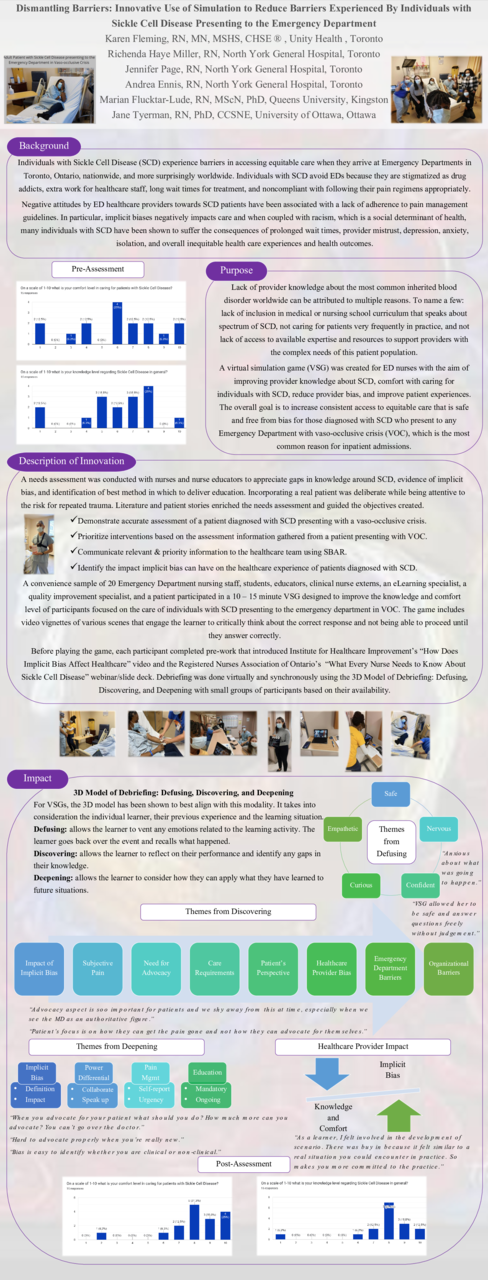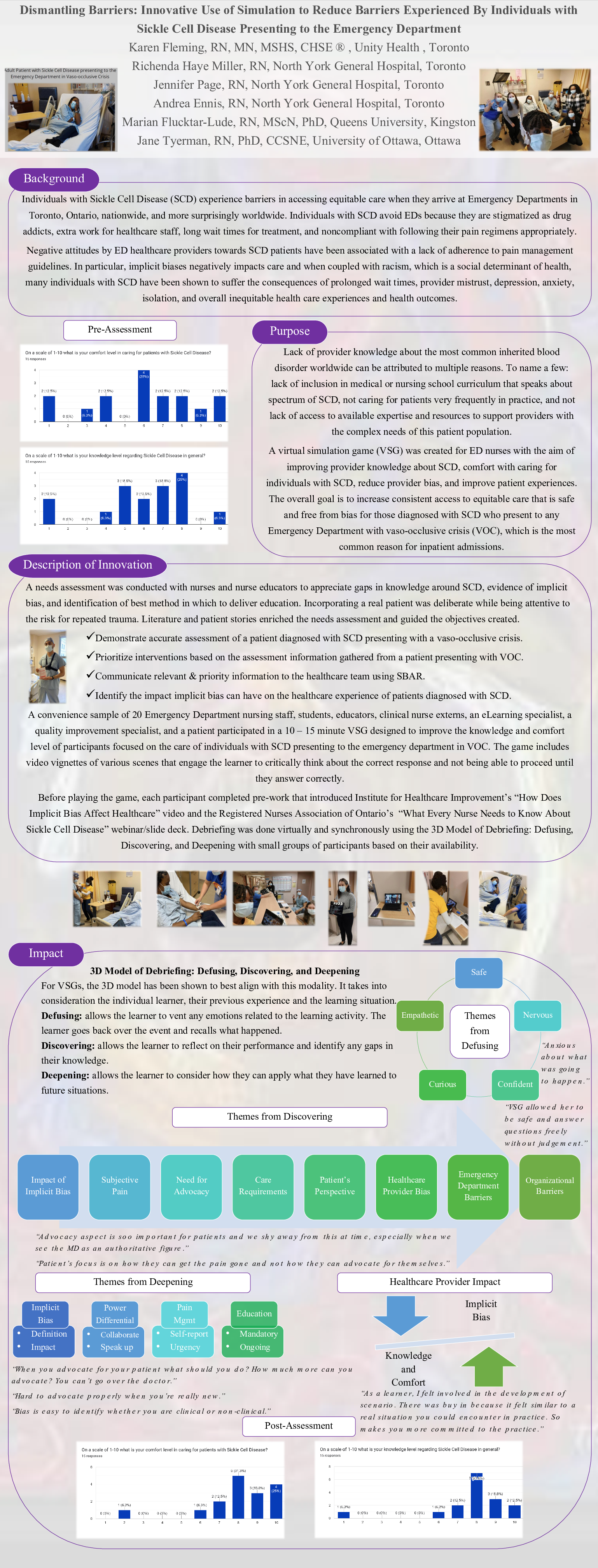Abstract
Background: Individuals with Sickle Cell Disease (SCD) experience barriers in accessing equitable care when they arrive at Emergency departments in Toronto, Ontario, nationwide, and more surprisingly worldwide. Individuals with SCD are stigmatized as drug seekers, drug addicts, extra work for healthcare staff, and noncompliant with following their pain regimens appropriately.
Implicit biases negatively impact care and when coupled with racism, which is a social determinant of health, many individuals with SCD have been shown to suffer the consequences of prolonged wait times, provider mistrust, and overall inequitable health care experiences and outcomes.
Aim Statement: To improve provider knowledge, reduce provider bias and thereby improve access to equitable care for those diagnosed with Sickle Cell Disease presenting to the Emergency Department of a community teaching hospital with vaso-occlusive crisis
Methods: A convenience sample of 20 Emergency Department nursing staff participated in a 10–15 minute virtual simulation game (VSG) designed to improve the knowledge and comfort level of participants focused on the care of individuals with SCD presenting to the emergency department.
Before playing the game, each participant completed pre work that introduced implicit bias and the RNAO What every Nurse Needs to Know About Sickle Cell Disease webinar.
Lastly, each participant completed a pre and post assessment utilizing a modified Clinician Experiences with Sickle Cell Disease Questionnaire, along with an overall evaluation of the game experience.
Results: For both comfort level and knowledge 31% of participants rated their comfort/knowledge as > 8 out of 10 pre game, while post game that value increased to 75% for both indicators.
87% of participants rated their experience with the game as > 8 out of 10.
Conclusion: Care of patients with SCD is complex and not well understood by many. This VSG can help to inform emergency room staff about the barriers individuals with SCD experience to help improve their overall care and outcomes.






